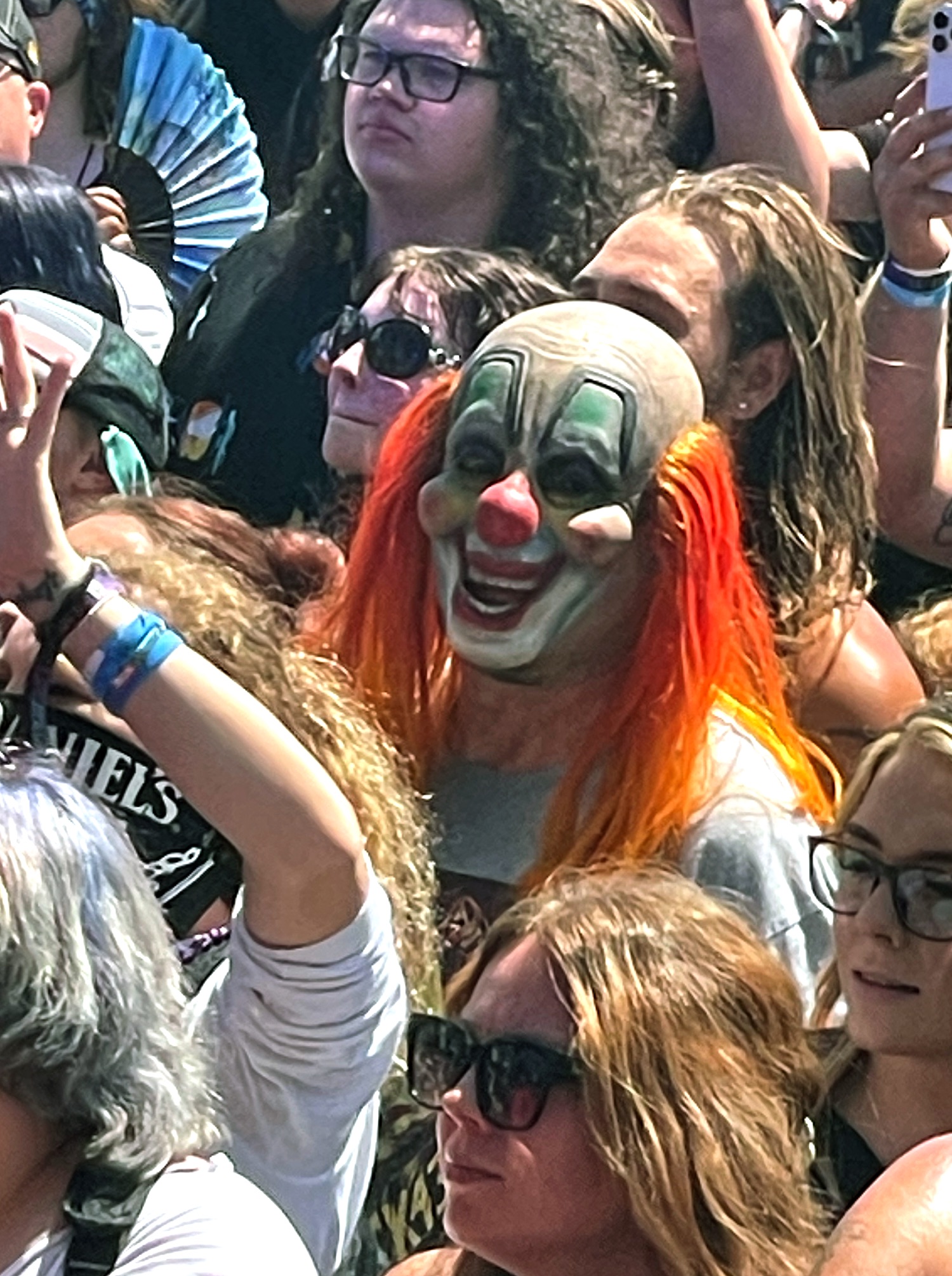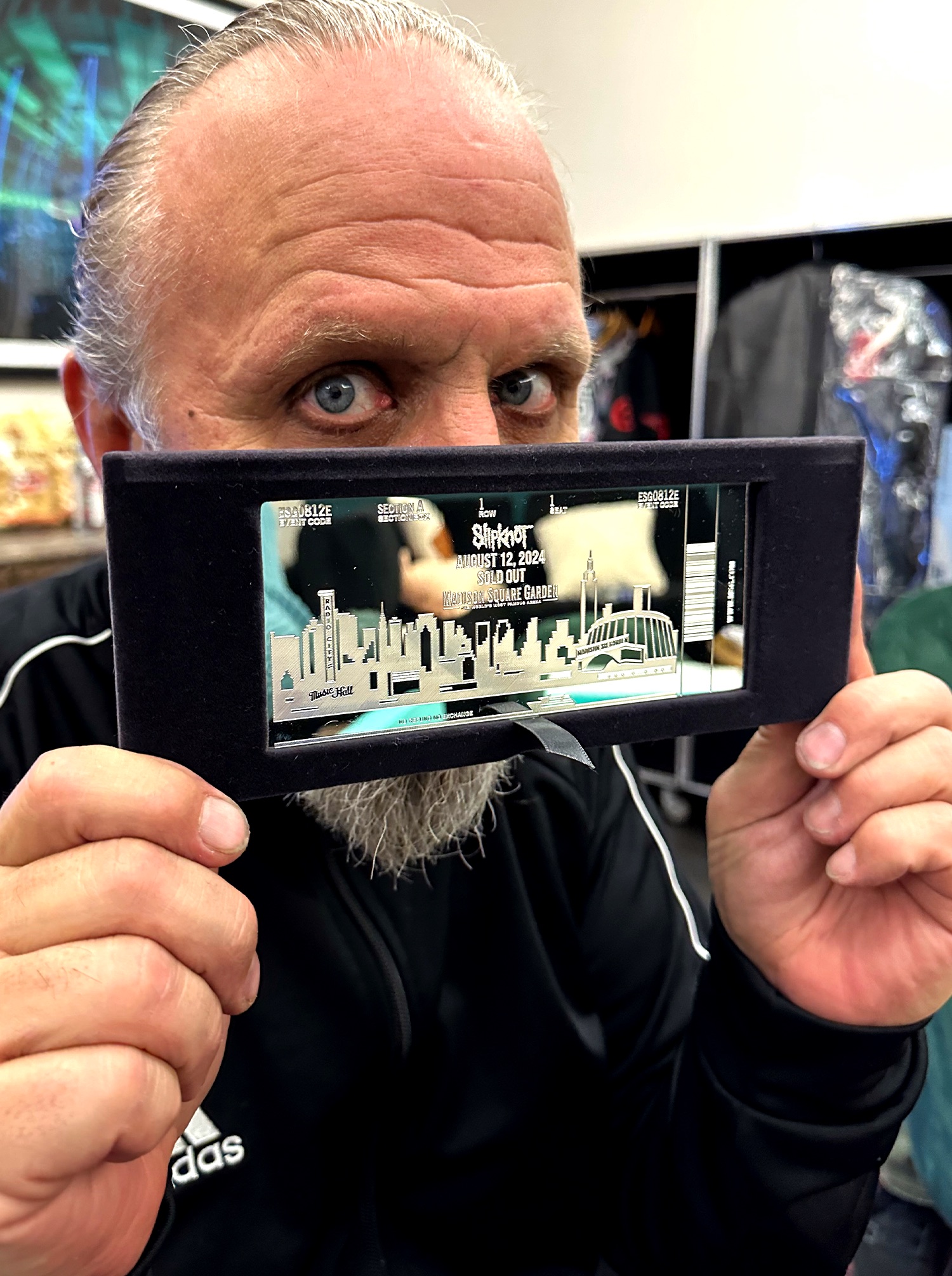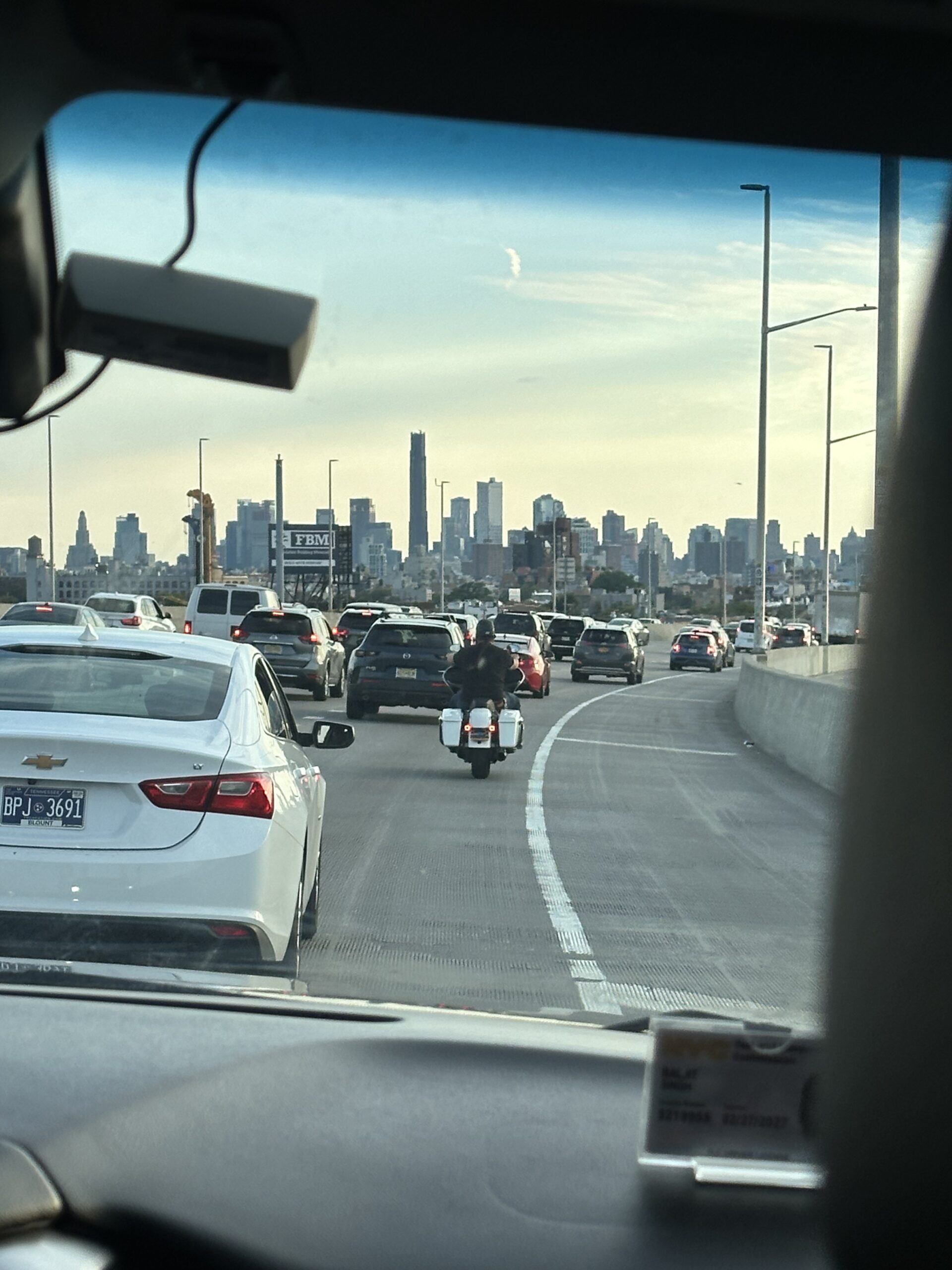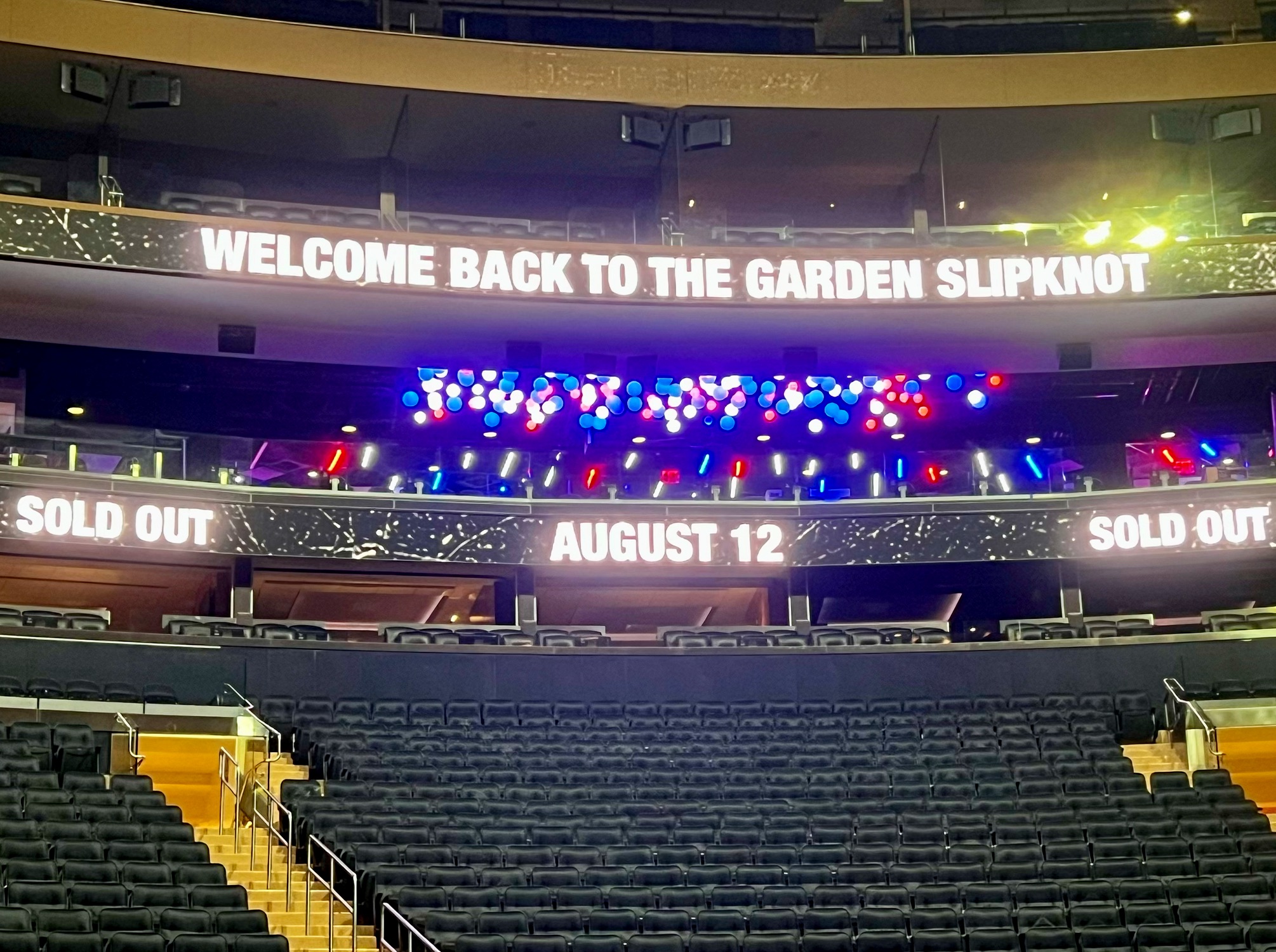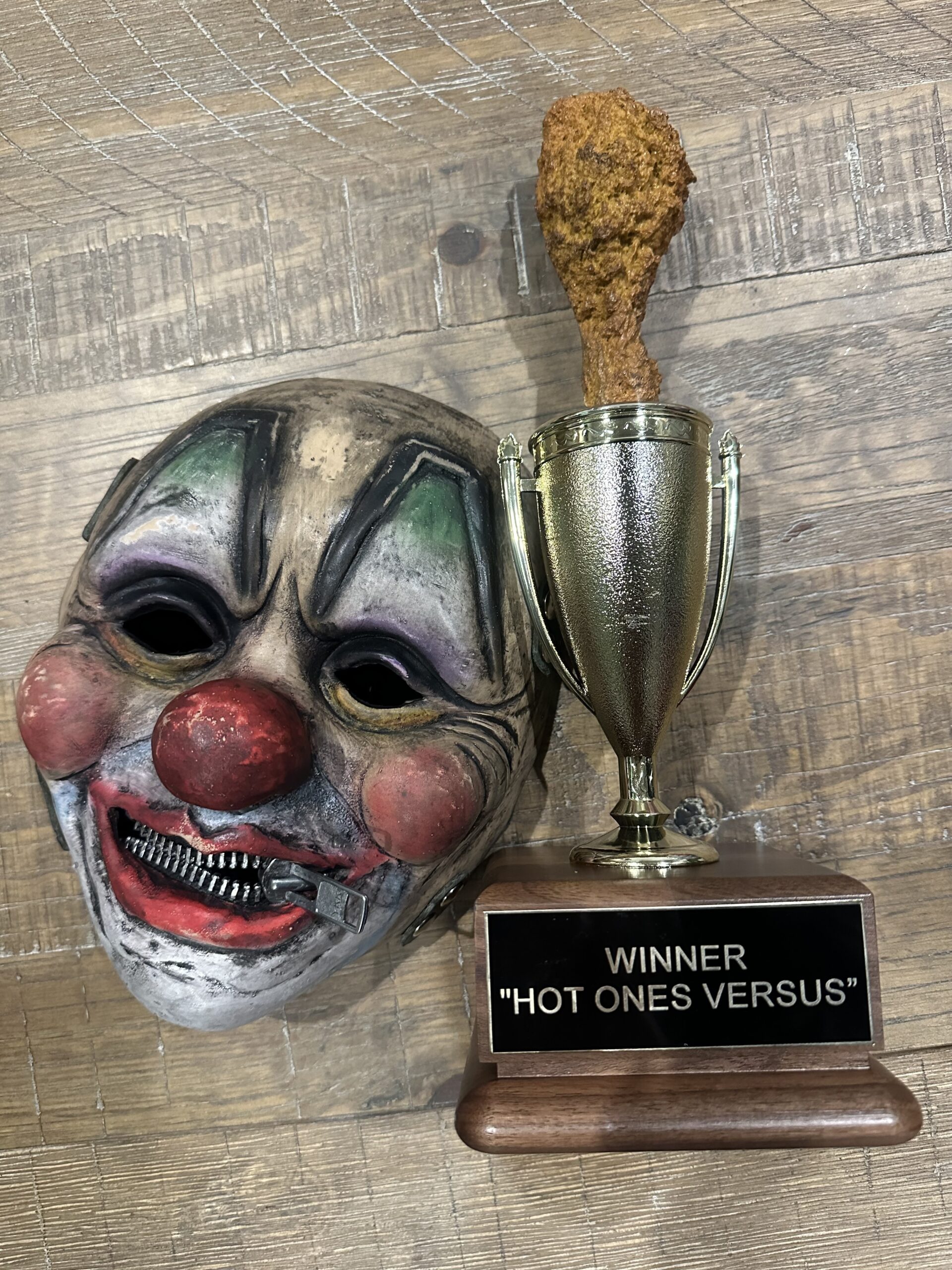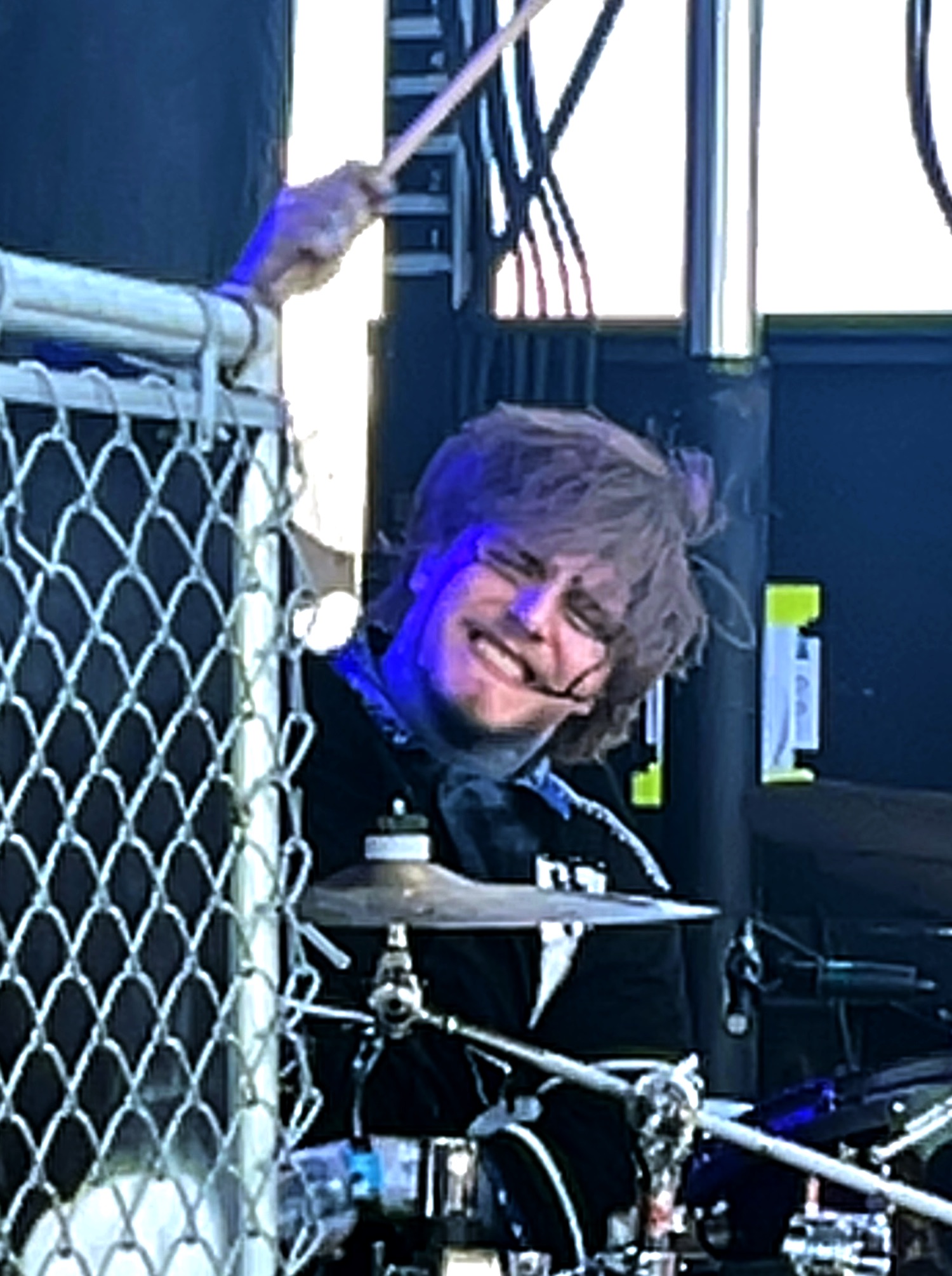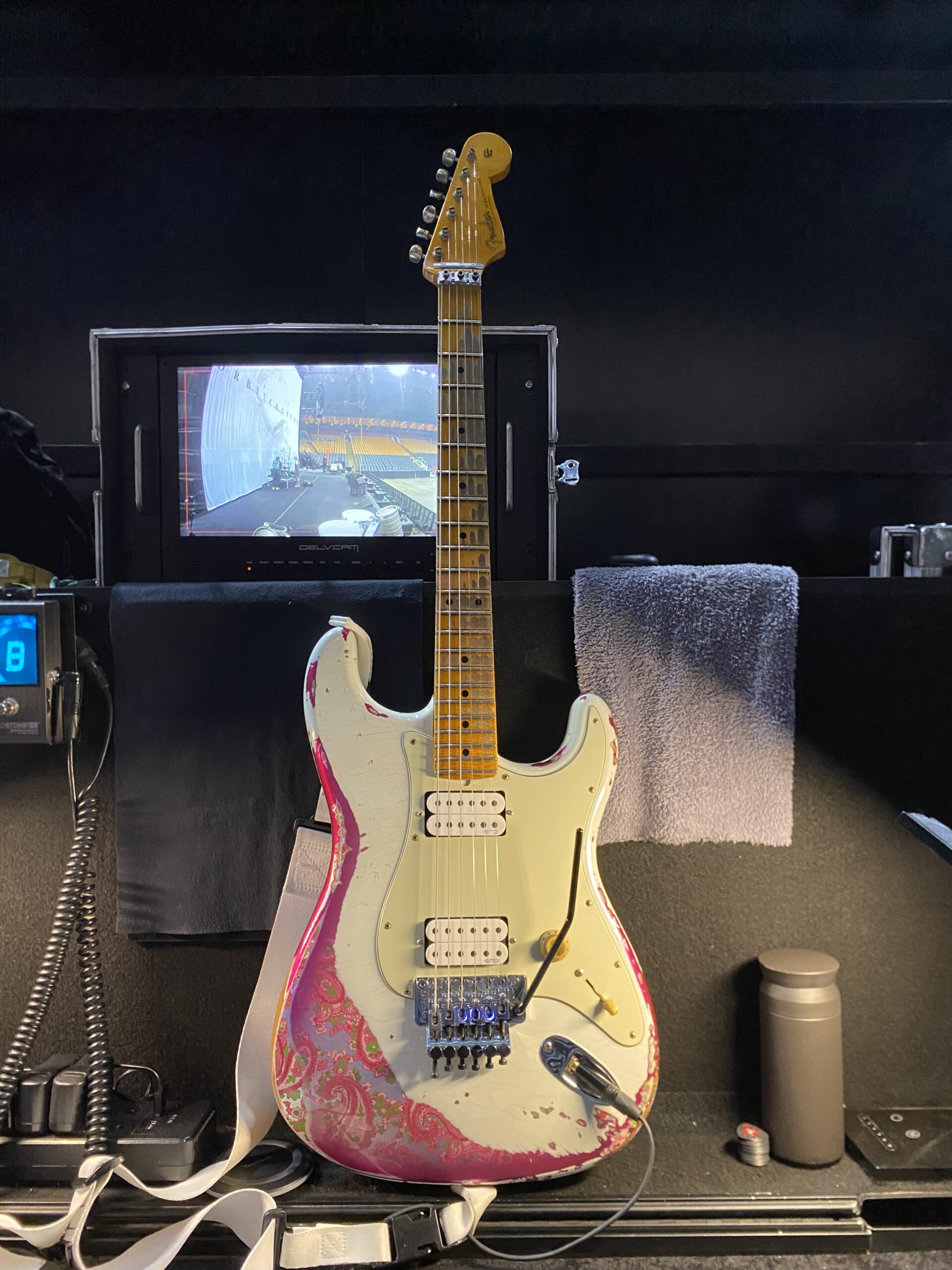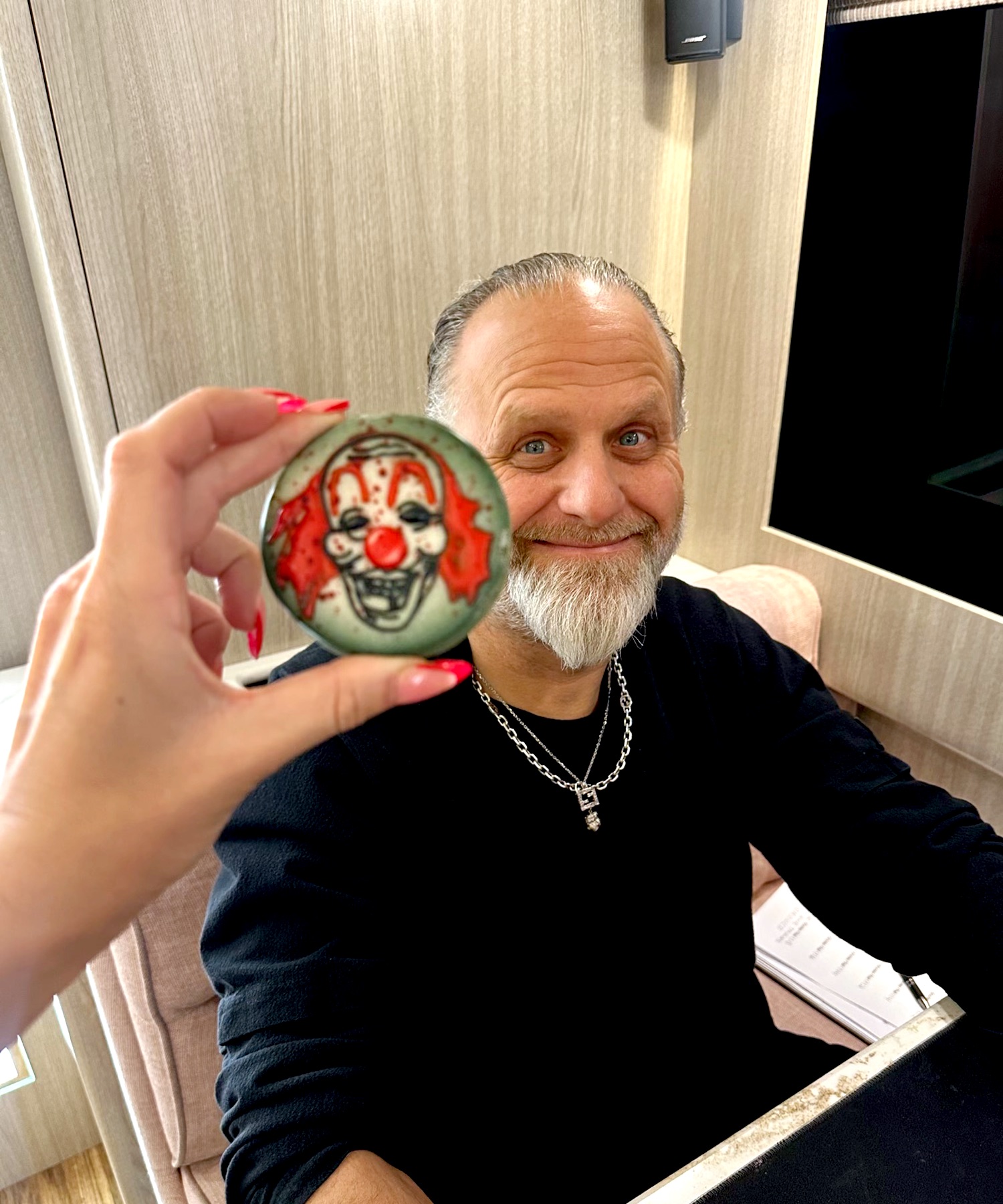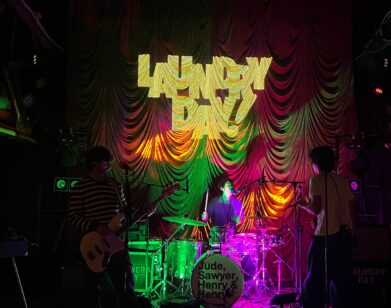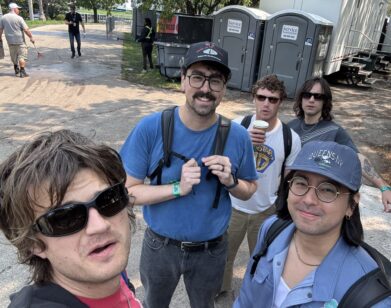TOUR DIARY
“I Felt the Whole Stage Moving”: Slipknot Takes Us on Their 25th Anniversary Tour
25 years after the band first got together in Des Moines, Slipknot is on a celebration tour. The metal world has changed since the iconic rockers, known for their crazy shows, first took the stage. More rules and less DIY spirit have them feeling nostalgic, but at their core, they haven’t changed, drummer Shawn “Clown” Crahan insists: “We just come from a realm where the love of music made everything else happen.” And now, they’re on an anniversary tour of their eponymous debut album, strictly for the real heads. After wrapping up sold-out shows in Latin America and at MSG, Clown and Jim Root called us up to reveal what life’s really like on the road. As Root says: “It’s like our own little miniature version of reliving Beatlemania.”
———
SHAWN “CLOWN” CRAHAN: Hello.
JULIAN RIBEIRO: Hey, Alex. How are you?
CRAHAN: It is Clown. I guess my computer was set up by Alex, so that’s why it says his name.
RIBEIRO: Oh, hey Clown. Where are you right now?
CRAHAN: I’m in Palm Springs recovering from a South American tour.
RIBEIRO: That sounds lovely. I’m in New York right now and it’s fucking miserable.
CRAHAN: I’m born and raised in Des Moines, Iowa, and I’m glad to be out of the seasons, for sure. I’m 55 now, but when our youngest son turned 18, we were out. He’s 20 now.
RIBEIRO: Totally. How has this tour been?
CRAHAN: Well, to be honest with you, touring is pirate life. And completing a South American tour, it’s quite a feat. You don’t know how big the place is until you go there. We started in São Paulo and we ended in Mexico City. You’re in and out of different time zones all the way up until the end, and then there’s the water and the food. You can’t have the water and you really can’t have anything that’s been cleaned by the water.
RIBEIRO: I’ve learned that lesson the hard way.
CRAHAN: And when you’re touring somewhere where you have to be extra careful about the food, you’re pretty much doomed. I burn a lot of calories on stage, is what I’m saying. I need to replenish constantly.
RIBEIRO: I think that most people who haven’t done that kind of thing don’t understand how pirate life it is. How have the crowds been?
CRAHAN: You can’t compare the South American fans to anybody else in the world except for probably Japan. I say it all the time. American kids are pretty lazy and spoiled when it comes to rock and roll. When you go over the pond anywhere, you get a deep appreciation of your brand, your art form, what you’ve created, your culture. We’re a straight up culture when you fly over the pond. We started in São Paulo with two sold out shows in a stadium. These people believe in grabbing a theme and holding onto it. When we just did four weeks in America celebrating the 25-year anniversary, I had no one in the fan base really talking about how special it is to be given the 25-year anniversary set. You go to South America and they’re basically in awe that you are giving them that.
RIBEIRO: Yes.
CRAHAN: They thank you a lot because you could choose anywhere in the world and you choose this sometimes very obscure place. They’re just absolutely unbelievable. We were in Bogotá and it was just this indoor arena, two sold-out nights, and it was damn near in the round. There were people above you and beside you, but adequate space. The whole thing was general admission. No one went to the hospital. Everything was cool. There weren’t all these weird barricades because everybody’s worried about everything. And we make the joke: you got to go to Bogotá to have a proper rock show. Because I’m 55, and when we were coming up, it was literally a free for all. That’s just what rock and roll was. So once in a while, it’s really nice to be able to see that that’s still out there. There’s a lot of rules and regulations in the states, and of course you never want anybody to get hurt, but it is very refreshing to just let it happen. These fans are just united, kind of like Japan. Anyway, it looks like Mr. Root has joined us. What’s up?
JIM ROOT: I somehow made it into the meeting and I heard Clown talking, so I let him finish his thought.
RIBEIRO: We were just talking about how the crowds were in the South American tour.
ROOT: I mean, there was one point we were playing “Liberate,” and I felt the whole stage moving from how much they were jumping. That’s only occurred a couple of times in our career. I remember looking up at these columns above the general admission floor, and I was wondering to myself, man, is that going to collapse?
RIBEIRO: My family lives in São Paulo, but unfortunately I’ve never been, and I feel really jealous.
ROOT: Oh, you’ve got to go. It’s amazing.
RIBEIRO: In America, no one can get near the stage, no one can jump, no one can party, or cops come.
ROOT: There’s too many insurance liabilities. We’re from the Midwest, and in the Midwest we’re more reserved. You see a difference even in America from coast to coast. If you’re on the East coast, the crowds are a lot more similar to the Latin America crowds. They just go off, they don’t give a fuck. In the Midwest a little more reserved. And then on the West coast, you get a little bit more crazy. But some of the more industrial cities are pretty off the hook, like Detroit. They’re just ready to fucking go for it.
RIBEIRO: Is there a city in America that’s always been really stoked for you guys?
ROOT: It’s not just because we just did Madison Square Garden, but I’m always surprised by our New York City crowds. That’s another level of bananas that really reminds me of Italy or Spain or South America or Mexico. All of Europe is kind of that way, too.
RIBEIRO: And with 25 years since the debut album, there are some songs you guys haven’t been played that much over the last few years, so it’s a lot of people’s first time hearing them live.
CRAHAN: We always set out to make ourselves happy first. Playing the album is wonderful because we’ve been such a set-oriented band for decades. And there’s been times when we’ve been asked to play certain albums, and we can play them all. But it’s been great to have no pressure and be able to say, “Hey, we’re going to do three months of this.” It’s much different than playing all the songs. “All the songs” is like this huge philosophy. And I’ll tell you, it’s just been so cool to reflect. It makes me think of brothers that are past and other brothers that are walking the earth and people that were there from the beginning that are still at the end. It’s been an honor to be able to do that, and everyone from North America to South America has really dug it and not given us too much pressure. Because there’s always people that want you to throw on a couple other things at the end, and we’re just not the band for that. We agree to what we want to do, and we do that. We don’t do anything else. So it’s been a good time.
RIBEIRO: I was going through some of the YouTube recordings of some of the shows on this tour, and people are in the comments being like, “This is for the real heads” or “No fucking requests.” It’s fun that you guys are able to sit in that and be like, “This is what we’re showing you, so turn the fuck up.”
ROOT: Well, that’s sort of the Slipknot philosophy anyway. Like Clown said, if we’re not making ourselves happy, we’re not going to make anybody else happy. It’s all about being real and true to ourselves. The Eagles, they try to throw all the hits into a set, and we’ve tried that. It’s fun for a while, but it gets real fucking boring. And we have a culture of fans, and they’re not there because of something they heard on Spotify. They’re there because a particular song or album moved them. The fans really get it. And you see that generationally, because when we started, I remember a guy that’s in our “Spit It Out” video that I talked to every once in a while on Instagram, and he’s a grown man now with children. And in that video he’s got spiky hair and colored contacts in, and as you would expect a metalhead to look in 1999, and he’s probably going to be bringing his kids to our shows. That’s kind of a wild thing. It’s like our own little miniature version of reliving Beatlemania.
RIBEIRO: Absolutely. Now it’s a cross-generational experience. And with the advent of the internet, the way you guys are shared is so different now.
CRAHAN: For us, things have changed so much. It’s sort of like you can’t keep our attention. We come from such a beautiful world of learning music without the internet and programs to teach you faster. And hey, AI can master your music. That’s cool. But really, this art form is all the peers that we know. We’re all from that school. We’re not from any new school that performs on tape or relies on a bunch of stuff. We took the rocket into space to see space, and space is a big place, but we’re still in our little rocket going forward.
ROOT: It’s crazy. There’s so much digital that happens, and we’re more of an analog band. That way we don’t have to play to tracks. So many bands play to tracks these days. You might as well just put the CD on and have them jump around on stage with instruments not even plugged in. And it’s kind of a shame. I mean, it’s great for bedroom musicians and bands that like to self-produce and do everything from home, but it takes away some of the danger and the happy accidents and the humanity. We came from an era where Milli Vanilli was vilified for lip-syncing, and now it’s glorified. That’s how much it’s changed. You know what I mean?
RIBEIRO: 100 percent. I was talking with someone recently from a different band, and he had brought his daughter to a show, and his daughter was super stoked whenever the musician would spin or something. And he was really taken aback like, “He’s just doing his job.” But the bar has kind of changed.
CRAHAN: Well, I think everybody’s being brainwashed and programmed. Honestly, if you go on any network and get any sort of song, you’re getting an encoded piece of crap. There’s all these different ways of listening, but everybody that’s going to shows, they’re getting direct input. I could go on and on and on about what it really is. But I’m 55, the world’s moving to get off the planet, the world’s moving to not leave the house and just be some sort of droid and do all your business from a camera. That’s evolution. That’s where it’s going. And in music, we see it all the time. Man, we’re real players. Most of our fans won’t look away because they’re listening and watching. But I go to all these festivals and I watch people watch big, big artists [perform] like zombies that have been programmed to what you visually are being given and hearing. And there’s a lot of control in all that garbage. How old are you, if you don’t mind me asking?
RIBEIRO: I’m 25.
CRAHAN: You’re half my age. Our album came out when you were born. So what I’m trying to say is, we’re all together because we loved what we were doing in such an elementary way that we got together and put together all-ages shows and learned how to charge and flyer and clean up the stage and carry our equipment. And then the bar owner’s telling us, “Hey, we’ve got to pay more money for our Sunday liquor license, so you dudes got to get out and flyer the whole city.” We just come from a realm where the love of music made everything else happen. I mean, we’re happiest when we’re playing. The rest of it is complete bullshit in my opinion. So it’s just really fresh when the bands come out and can’t throw the curveball anymore. I can’t remember the last time I was on stage and felt that danger instead of whatever fabricated ride the world’s deciding to take us on. All I’m doing is defending the era we come from. We haven’t changed. We’re just ourselves and still have the ability to do it.
RIBEIRO: I totally hear it. I have a brother who’s 16 and I take him to shows. I had to yell at him because he just takes the iPhone out and records the whole show and watches it through the phone.
CRAHAN: Exactly.
RIBEIRO: I’m like, “Get off the fucking phone, dude.”
CRAHAN: It’s not necessarily his fault, because if you don’t go with change, you get left behind. All of us are going to see younger people doing things that we’re a little taken aback by. That’s the brainwashing I’m talking about. He picked that up somewhere, and so did everyone else. And we’ve heard artists like Jack White say, “No cameras, no phones with lights.” And yes, a majority of kids will literally watch the shows through their phone, and we could be mad about that, but it’s not going to go away. I’m just really proud to be a part of an organization that still fucking bleeds man. We bleed, we bruise. We go for it.
ROOT: That’s definitely kind of a tip of the hat to how technology can be good and bad. In some ways, you’re sacrificing yourself from a live event that’s happening right in front of your face. But at the same time, you’re sharing it with 100 or maybe even 10,000 other people that can’t be there at that moment, documenting in real time. It’s kind of a double-edged sword. And I still get up there and do what I did 10 years ago, 20 years ago. I might not jump as high, but in some ways, maybe I’m still 26.
RIBEIRO: Definitely. People from my generation maybe never even got to experience concerts before smartphones.
CRAHAN: You have no idea. I mean, think about this brother GG Allin. Of course, there were chemicals involved in things like this, but GG Allin and The Murder Junkies would be fight club. You’re talking about people getting beat up by GG or the crowd beating GG. I mean, this wasn’t just that band. You’re talking about a whole world. You can’t even imagine a Black Flag show. We were from Iowa, we didn’t get a lot of that, but 1982 or 1983, Bad Brains at CBGB, go look that up. Just watch H.R. do backflips and people rushing the stage. This is the world we come from, where some bands would let you sit on the stage and encourage it. I’m not belly aching, but I am saying that hopefully the physical performance is always needed. I feel very fortunate to have come the full distance. And I guess I’m talking about this a lot because it really is about celebrating 25 years. You have your whole life to write your first album, and then you get to play it 25 years later, and people want it and love it and say thank you. So it’s just been a privilege and an honor to be able to take the journey I’ve been on to be where I’m at now. It’s been a great ride.
ROOT: It’s been awesome. Can you imagine a world though, where we’re all at home and our sound and light PA travels and people get VR goggles and we literally play live from home jacked into a Pro Tools or something?
RIBEIRO: I can’t imagine that.
CRAHAN: It’s going to happen.
RIBEIRO: Well, this is a good segue into my last question, which is that we’re 25 years into Slipknot. What’s the next 25 look like for you guys? Where do we go in this strange future of digital bullshit?
ROOT: I mean, as far as songwriting goes, we’re still trying to learn how to do that and evolve. And I think Clown, for Shawn, he’s got a lot of weight on his shoulders with the artistic vision of the band. I mean, this all came from his brain. And listening to him speak, there’s a lot going on in there. How do you combine art and logistics and make them cross perfectly? There’s a lot of that to look forward to in the future. And maybe it’s not too far off from that VR goggle thing or holograms, who knows? Or maybe we strip it all the way back down and we just go back to playing clubs and doing a Pappy and Harriets type show like we did before we started this kind of run.
CRAHAN: I agree. I’m a fact guy. I was explaining to my youngest son a couple of days ago that my mom checked out at 58, that’s three years ahead of me right now. That’s in the genes. So where I stand, it’s like a testimony that the end is unavoidable. But what’s exciting is just what Jim said. There’s so much to ponder. And I love that about Slipknot, that I wake up every day still thinking and dreaming in my own way, and I know the other guys do, too. I don’t think that’s going to change until we do exit this reality. But until then, it’s a very exciting time. It’s time to write and it’s time to contemplate art and life and the future. And it’s scary, but it’s also beautiful and full of mystery. And that’s what Slipknot’s usually best at. We step into everything. I’m really excited for it.
RIBEIRO: That is a terrific place to end this convo. I’m really feeling some FOMO about not seeing you guys now because it sounds really fucking fun.
ROOT: Come catch the European show. It’d be fun.
RIBEIRO: Oh, it’d be super fucking fun, dude. Have a fun, safe, or unsafe rest of the tour.
CRAHAN: Safe is kind of one of those words. We need to hear that, but it’s also one of those words that scares us because it is completely unsafe for us at all times, in many ways. But man, come check us out, be our guest, and we’ll house you over there. Come to Amsterdam.
RIBEIRO: I would be honored.

